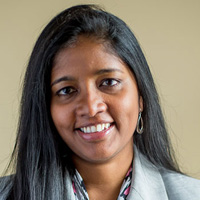It’s Never Too Late for a Family Meeting – Here’s How to Do Them Well
When there is a large inheritance at stake (or even when there isn’t), it’s a great idea to get everyone on the same page. A family meeting can make that happen, and it can even be enjoyable.


Profit and prosper with the best of Kiplinger's advice on investing, taxes, retirement, personal finance and much more. Delivered daily. Enter your email in the box and click Sign Me Up.
You are now subscribed
Your newsletter sign-up was successful
Want to add more newsletters?

Delivered daily
Kiplinger Today
Profit and prosper with the best of Kiplinger's advice on investing, taxes, retirement, personal finance and much more delivered daily. Smart money moves start here.

Sent five days a week
Kiplinger A Step Ahead
Get practical help to make better financial decisions in your everyday life, from spending to savings on top deals.

Delivered daily
Kiplinger Closing Bell
Get today's biggest financial and investing headlines delivered to your inbox every day the U.S. stock market is open.

Sent twice a week
Kiplinger Adviser Intel
Financial pros across the country share best practices and fresh tactics to preserve and grow your wealth.

Delivered weekly
Kiplinger Tax Tips
Trim your federal and state tax bills with practical tax-planning and tax-cutting strategies.

Sent twice a week
Kiplinger Retirement Tips
Your twice-a-week guide to planning and enjoying a financially secure and richly rewarding retirement

Sent bimonthly.
Kiplinger Adviser Angle
Insights for advisers, wealth managers and other financial professionals.

Sent twice a week
Kiplinger Investing Weekly
Your twice-a-week roundup of promising stocks, funds, companies and industries you should consider, ones you should avoid, and why.

Sent weekly for six weeks
Kiplinger Invest for Retirement
Your step-by-step six-part series on how to invest for retirement, from devising a successful strategy to exactly which investments to choose.
Jane and John, who are parents to four adult children, have amassed substantial wealth during their careers. To experience the joy of seeing their children enjoy some of this wealth – and to take advantage of the current high federal estate tax exemption amounts – which could potentially be reduced – they would like to give away some of it during their lifetime. However, they are concerned that their children and spouses might not be ready to handle the responsibilities of receiving large monetary gifts that could change their lives.
Though well-intentioned, will the gifts become burdensome to their children? How can Jane and John ensure that their children and their families will be good receivers and stewards of their inheritance? While Jane and John are hypothetical clients, their challenge is a common one.
Wealth education, or even the basics of money, is not part of the curriculum in most public schools. If parents don’t take on that responsibility, young adults often leave home with little to no knowledge about the fundamentals of money management, such as banking, debt, saving and investing. There are many reasons these conversations aren’t had at home, especially for families of substantial wealth. Some parents feel that sharing information about their wealth would demotivate children and make them “trust fund babies,” while to others it is a reminder of their own mortality. Perhaps parents never had the conversation with their own parents growing up, so they find it a difficult and awkward subject to broach. Avoiding the subject seems like the easier and more pleasant path to take.
From just $107.88 $24.99 for Kiplinger Personal Finance
Become a smarter, better informed investor. Subscribe from just $107.88 $24.99, plus get up to 4 Special Issues

Sign up for Kiplinger’s Free Newsletters
Profit and prosper with the best of expert advice on investing, taxes, retirement, personal finance and more - straight to your e-mail.
Profit and prosper with the best of expert advice - straight to your e-mail.
Regardless of how much wealth a family has, wealth education is crucial to overall financial education, preparing for the future, and to becoming a good steward of an inheritance. For parents who haven’t had conversations early, it’s not too late.
Family meetings are a thoughtful and effective way of bringing members of a family together with a goal of facilitating communication and education. They allow for sharing family stories, communicating values, setting goals to help ensure transparency, and helping members across generations understand their roles around stewardship and wealth.
How do you have an effective family meeting, one that its members not only value, but also look forward to?
- Do some prep work. As an important first step, the hosts of the meeting should spend time with each participating family member to help them understand the reason for the meeting and learn more about what their expectations are. There should be a desire and commitment from the participants to invest time and effort to make family meetings successful.
- Plan ahead. Setting a clear agenda that defines the purpose and goals of each meeting and sharing this agenda with participants before the meeting are a key to its success. Choose a neutral location that makes everyone comfortable and encourages participation. Carving out part of a day during a family trip or while at a family vacation home are examples of neutral locations where families tend to be at ease.
- Break the ice. Allow time for a fun ice-breaker activity to put people at ease. This could be an activity or a question (“What does the family business mean to you?” “What money messages did you receive, and what message would you like to pass on to your own children?”) that all family members answer.
- Set aside time for learning. Include an educational component in the agenda, such as an introduction to investing, estate planning, budgeting and saving, or philanthropy.
- Have a “parking lot.” Document subjects brought up that might need to be addressed in a future meeting. This shows members that everyone’s participation and input is valuable and that while a subject might not fit into the present agenda, it will be included in a future meeting.
- Include a facilitator. Consider including a trusted adviser to facilitate the meeting. Having a facilitator present who is experienced in working with families of wealth can help with managing the agenda, offering a different perspective, calming emotions and making sure everyone is heard and understood.
- Follow up. Include some “homework” and schedule the next meeting to set expectations about continuing to bring the family together.
Correctly facilitated, family meetings can be a safe place for members across generations to communicate effectively and learn about stewardship. The goal is that the family unit will continue to flourish even after the first generation has handed over the reins to the next.
So, what happened to Jane and John? They sought the help of their adviser, who spent time upfront understanding their goals and getting to know their children and their spouses. They planned their first family meeting. During that meeting, the parents shared their story and communicated details about their values, goals and expectations. Over the next few years, the family met several times and talked about a variety of topics. The children learned more about investing and opened their own investment accounts, to which the parents made gifts. They talked about estate planning and created their own estate plans.
Following a meeting on philanthropy, the parents created a Donor Advised Fund so that the children could come together, recommend gifts to the charities of their choice and make joint decisions about charitable giving. These planned meetings brought the family together, nurtured relationships and strengthened the family unit. They came to understand their responsibilities as stewards of the wealth created by their parents and gained more confidence to build lasting wealth for the generations to come.
Profit and prosper with the best of Kiplinger's advice on investing, taxes, retirement, personal finance and much more. Delivered daily. Enter your email in the box and click Sign Me Up.

As a Senior Wealth Adviser at The Colony Group, Indrika Arnold provides clients with financial planning services while helping the firm develop and refine Family Office services. She is a financial professional with 15 years of experience. Indrika serves ultra-high net worth individuals and families, and she focuses on all areas of planning. She has a particular interest in helping to prepare the next generation to be responsible stewards of their inherited wealth.